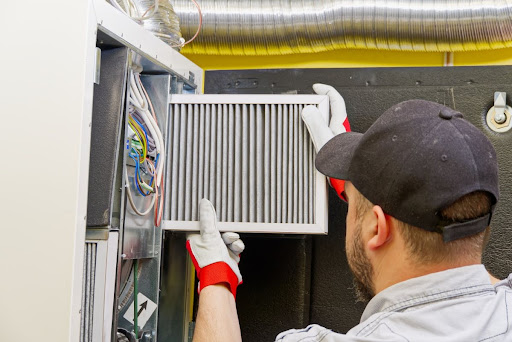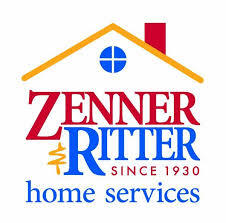How Long Does a Furnace Last?

When we buy new appliances or home systems, we usually focus on the excitement of a new purchase. What we don’t always stop to think about right away is how long that purchase will last. This is especially true for a furnace. It’s one of those home essentials we rely on year after year, but most homeowners don’t give it much thought until it starts acting up — or stops working altogether.
So, how long does a furnace last, and what can you do to keep yours running efficiently for as long as possible? Let’s go over everything you need to know.
Furnace Average Lifespan
Your furnace is built to last, but eventually, even the most reliable system can’t hold out forever. It’s important to recognize when it’s nearing the end of the average furnace lifespan.
So, how long does a furnace last? On average, a furnace lasts between 15 to 20 years. However, some may need to be replaced sooner, while others keep going strong beyond the 20-year mark. A well-maintained furnace can reach the higher end of that range, while one that’s neglected may not make it that far.
Gas vs. Electric Furnace Lifespan
Gas furnaces and electric furnaces have slightly different life expectancies. A natural gas furnace tends to last around 15 to 20 years, while an electric furnace can potentially reach 20 to 30 years due to having fewer components that wear out over time. (Though, electric furnaces are very uncommon in our region.) However, other factors play a role in how long your furnace will last.
Factors That Impact Furnace Longevity
Several elements impact furnace life expectancy, including:
Quality of Installation
How a furnace is installed matters more than people realize. If it’s installed properly by an experienced HVAC professional, it will run efficiently and last longer. A poorly installed furnace may struggle from the start, leading to high energy bills, frequent repairs, and a shorter lifespan.
Regular Maintenance
Routine maintenance is key to keeping a furnace in good shape. Annual furnace maintenance helps catch minor issues before they become costly repairs. Skipping maintenance can lead to dirty filters, worn-out parts, and high energy bills. A well-maintained furnace will last longer and perform better throughout its life.
Frequency of Repairs
If your furnace is constantly breaking down, it could be a sign that it’s reaching the end of its life. Frequent furnace repair can add up quickly, and at a certain point, it may make more sense to invest in a new furnace instead of paying for ongoing fixes.
Furnace Usage
The more a furnace runs, the faster it wears out. If your heating system is constantly working hard to keep up with sudden temperature changes, it may not last as long as one that runs at a steadier pace. Homes in colder climates where the furnace runs for months on end tend to need furnace replacement sooner than those in milder areas.
Type of Furnace
The type of furnace in your home plays a role in its life expectancy. A high-efficiency furnace may last longer because it operates more effectively, using less energy and putting less strain on components. However, older models or old furnaces with outdated technology might not last as long due to wear and tear on parts like the heat exchanger and flame sensor.
Air Filter Maintenance
Changing furnace filters regularly helps your system breathe. A clogged air filter restricts airflow, forcing the furnace to work harder. This can lead to overheating, breakdowns, and a shorter furnace lifespan. Regularly replacing filters keeps things running smoothly and helps maintain indoor air quality.
Ductwork Condition
Leaky or loose ducts make your furnace work harder to push warm air throughout your home. If your air ducts are clogged with dust or debris, airflow is reduced, which can strain the system. Sealing and cleaning ducts as part of routine maintenance can help your furnace last longer.
Heat Exchanger Condition
A cracked heat exchanger is a serious issue that can lead to carbon monoxide leaks. If this happens, it may mean it’s time to replace the furnace. The heat exchanger is one of the most expensive parts to replace, and in many cases, it’s more cost-effective to get a new furnace instead of repairing an old furnace with a failing heat exchanger.
Energy Efficiency
An energy-efficient furnace generally lasts longer because it operates more effectively. Older furnaces often run at lower efficiency levels, leading to higher utility bills and more strain on the system. If your energy bills keep climbing despite regular furnace service, an upgrade to a high-efficiency furnace might be worth considering.
Signs Your Furnace Is Nearing the End
Knowing the average furnace lifespan is helpful, but being able to spot the warning signs of a failing system is also essential for avoiding inconvenient breakdowns. Are you unsure if it’s time to replace your furnace? Here are some warning signs:
Frequent Repairs
If you’re calling for furnace repair more often than usual, your system is probably on its last legs. At some point, the cost of repairs outweighs the price of a new furnace.
High Energy Bills
An aging furnace works harder to keep your home warm, leading to high energy bills. If your HVAC system is driving up your costs, it may be time to upgrade.
Uneven Heating & Sudden Temperature Changes
Are some rooms warmer than others? Is your furnace blowing cold air when it should be heating? These could be signs that your system is struggling.
Strange Noises
Banging, rattling, or screeching sounds aren’t normal. They can indicate loose ducts, a faulty blower motor, or other issues.
Yellow Flames
A natural gas furnace should have a blue flame. If it’s yellow, it could mean carbon monoxide is being released into your home — a serious safety hazard. This is an urgent issue that requires immediate attention.
Need Help in Western New York? Call Zenner & Ritter!
So, how long does a furnace last? The average furnace lifespan is around 15 to 20 years, but this depends on factors like maintenance, usage, and installation quality. Regular furnace maintenance, replacing furnace filters regularly, and addressing repairs early can help extend its life.
If you’re wondering if it’s time to replace your furnace, Zenner & Ritter can help. Our NATE-certified technicians are proud to offer comprehensive heater services in Buffalo, NY, and the surrounding areas, including maintenance, repairs, and installations.
We’re known for our commitment to quality work and excellent customer service, making us a trusted choice for homeowners in the area. Whether you need a brand-new installation or a heater repair in Buffalo, NY, we’ve got you covered. Contact us today to book an appointment!
